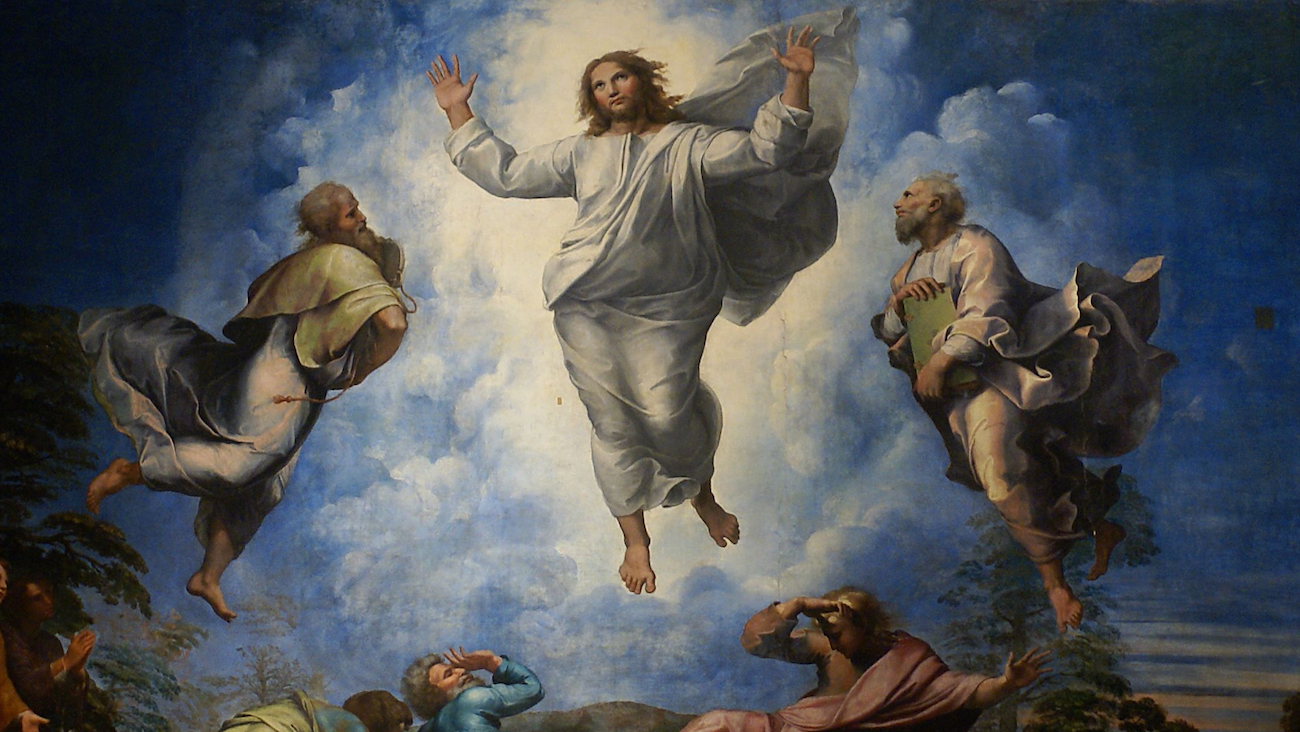The narrative of the Transfiguration is proposed to our consideration not once but twice a year! (Also on August 6). It is that important. It is about our future of glory in the following context:
Do not conform yourselves to this age but be transformed by the renewal of your mind, that you may discern what is the will of God, what is good and pleasing and perfect. […] so we, though many, are one body in Christ and individually parts of one another. (Romans 12:2,5)
Discerning God’s will, we realize that, as with any other aspect of his divine plan, this one too, shows that it is always our Father who takes the initiative to transform or, rather, transfigure us so that the Body may, one day, be as glorious, as luminous and as dazzling as Jesus the Head is.
Here is God’s initiative in the transformation of Abram: The LORD said to Abram: “Go forth from the land of your kinsfolk and from your father’s house to a land that I will show you. (Gen 12:1)
Our transfiguration, as the one from Abram into Abraham begins with docile listening to the Father’s word. Abraham is Abram with HA, the Spirit of God inside.
Here is the initiative of God in the lives of Peter, James and John: “This is my beloved Son, with whom I am well pleased; listen to him.” (Mt 17:5)
Saintly people assure us that listening to Jesus creates an atmosphere of intimacy more intense than the one of Yahweh God with Abraham, Moses or any of the prophets. However, our transfiguration remains a process that has upsetting and painful phases.
As envisioned by the Lord, (see Abram) our transfiguration begins with us taking the difficult steps of leaving behind whatever has been familiar: our home, family, culture, land, possessions; even our level of education, our acquired knowledge; also including whatever is a source of pride and accomplishment, all the way to our good deeds and heartfelt prayers. This detachment is required of each member of the Body of Christ who is fully engaged in working with the Holy Spirit in this individual and collective transfiguration.
The all-encompassing transformation also calls us to undertake a winding, arduous climb marked by hesitations, doubts, frustrations, regrets, repeated falls and a lot of fear.
When the disciples heard this, they fell prostrate and were very much afraid. (Mt 17:6)
If we wish to evaluate at what stage of our transfiguration we find ourselves today, we can do so by assessing the level of inner freedom that we have achieved. The freer we are from fear the closer we are to seeing that our transfiguration is progressing. It is the inner freedom that marked the lives of Abraham, Paul, Mary and also of Peter, James and John after they had eaten with the risen Lord and had been strengthened by the Holy Spirit for their bold proclamation of the Gospel to the ends of the earth.
Invariably, our transfiguration includes a basic, unconditional surrender of our total “self” into the Father’s hands accompanied by a courageous acceptance of his proposals. Now, we have been attending church long enough to understand that our transfiguration demands detachment from evil inclinations and sinful lifestyles. But we might be bewildered by the additional call also to free ourselves of our good deeds and our best prayers, in the sense that we cannot count on our good deeds and best prayers to create any leverage before the Father. It is so because all the good that we might ever do and our ability to pray as we ought must be credited to the Holy Spirit.
Once it becomes natural for us to give praise and thanks to God for our good deeds and prayers, our transfiguration requires trust-filled docility to the will of the Father.
Jesus said to them, “My food is to do the will of the one who sent me and to finish his work. (Jn 4:34)
For our transfiguration to progress until it is like the one of Jesus, besides attributing all merits to God’s grace and none to our skill; besides allowing the Spirit to come to our aid as we pray (Romans 8:26) it disposes us to choose, always, the Father’s will over ours. This openness to the work of the Holy Spirit in our ongoing transfiguration is meant to develop familiarity, intimacy and as genuine a love as it is humanly possible on this earth. In our love for the Father, Son and Holy Spirit we begin to develop the same tastes, preferences, longings, inclinations and choices of the Holy Trinity!
Here is Paul’s experience: Yet I live, no longer I, but Christ lives in me; insofar as I now live in the flesh, I live by faith in the Son of God who has loved me and given himself up for me. (Gal 2:20)
Of course we feel as if we are still light years behind St. Paul on our ascent of Mt. Tabor! But, today could be the day in which we benefit from the afterglow that the transfigured Christ shed on his three companions on the holy mountain and from them, down the centuries, all the way to us, believers of 2017. In the light of that afterglow we should reinterpret the presence of annoying and bothersome people in our lives as gifts from the Father. He placed them so close to us to expedite the removal of dross and imperfections from our behavior and interactions because what we find aggravating in them, believe it or not, is close to what people still find irritating in us. And if we need a lot of encouragement in allowing our transfiguration to continue without undue delays, we should ask the Holy Spirit to point out to us the progress made by people close to us rather than their flaws which are immediately noticeable to us.
We cannot lose sight of the fact that the individual transfigurations are all part of the Transfiguration of the whole Body of Christ. They are all the spectacular work of the Holy Spirit. We climb the tortuous road of our earthly journey sustained by the sure hope that, in heaven, the Body will be, forever and ever, as glorious, as luminous and as dazzling as Jesus the Head is.
Here, then, in a nutshell, are our marching orders until that glorious day:
Let love be sincere; hate what is evil, hold on to what is good; love one another with mutual affection; anticipate one another in showing honor. Do not grow slack in zeal, be fervent in spirit, serve the Lord. Rejoice in hope, endure in affliction, persevere in prayer. Contribute to the needs of the holy ones[…] Bless those who persecute you, bless and do not curse them. Rejoice with those who rejoice, weep with those who weep. Have the same regard for one another; do not be haughty but associate with the lowly; do not be wise in your own estimation. Do not repay anyone evil for evil; be concerned for what is noble in the sight of all. (Rom 12:9-17)
We shall all look forward with expectation to what lies ahead. (Philippians 3:13)








